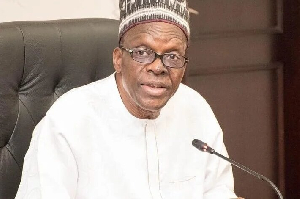Government will not compete with hubs which are set to train about 7,000 people under its Business Support Programme, Chief Executive Officer of the National Entrepreneurship and Innovation Programme (NEIP), Mr John Kumah has assured.
Rather, it will provide the enabling environment and startup capital for young and budding entrepreneurs.
“Our duty is to give you the people to train, and so we will expect the highest form of professionalism, select the best ideas for support,” Mr Kumah stated during stakeholder engagement with about 50 hubs in Accra last Friday.
Even though 500 out of 7,000 applicants will receive seed capital to set up their enterprises, all applicants to the NEIP Business Support Programme (BSP) should be able to receive training from the hubs so they build capacity in marketing, branding and other management skills.
Under the aegis of the Ministry of Business Development, the NEIP has struck collaboration with some 50 hubs, which will provide structured entrepreneurial training for the 7,000 people who have applied to be trained under the BSP.
The hubs, as part of the training process, will be required to know the trainee businesses very well in terms of their value proposition, product or service innovation, business location and their financial performance.
According to Mr Kumah, the hubs will select the best 10 of the businesses that will come into their centres for training and presentation to the NEIP.
British Council lends support
The NEIP has partnered with the British Council to develop standardised training module and criteria that would be used to select the final beneficiaries of the programme.
NEIP will this month sign a memorandum of understanding with all 50 hubs, as well as the British Council, to cement the partnership and for training to commence by April 23, 2018. The council will train officers at the hubs, who will in turn train the applicants.
Hubs will be monitored and evaluated
CEO of NEIP informed the hubs they would be monitored and evaluated “to know the kinds of training to be given to the applicants.”
“By the time the applicants leave your hub, they have ideas about how to source for funds to establish themselves or keep themselves in business,” he said.
The continuous presence of the hubs on the programme will depend on the quality of training given, he disclosed.
Click to view details



Business News of Tuesday, 10 April 2018
Source: www.thefinderonline.com

















